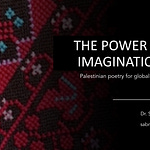This is our first conversation for substack! Welcome!
As Sabrin’s husband, I have the privilege of being part of conversations that are both deeply personal and intellectually rich. This newsletter and podcast is my way of sharing those moments with you - both through recordings and in written format.
In this conversation with Sabrin, we discussed her journey toward becoming a published writer, exploring her mixed emotions about her accomplishments and the act of writing, particularly in the context of the ongoing genocide in Palestine.
I will summarise the conversation below for those who prefer a quick read.
“It’s your idea actually… I’m following you.”
In the opening of our discussion, Sabrin and I talk about the origins of this newsletter/podcast and how this shared project may help others navigate similar creative struggles.
We plan for our conversations to be not only about books she’s read but also about her journey as a developing writer.
“I came to the UK in 2015…”
Sabrin delves into the reasons that drove her to the UK in 2015, a decision that sparked her unexpected journey into writing. As Sabrin undertook an universty course for travel writing, she found herself consistently returning to the same subjects within her writing:
“Two topics kept coming in my writing, no matter what the brief I was given… my mother and the grief for my mother, and Palestine and the grief for Palestine.”
A lecturer noticed this powerful connection between personal and political grief, leading him to suggest that Sabrin undertake a PhD and write a book. This marked a turning point in her journey, though at the time she felt unsure about her future as a writer.
“I won the prize… my first gut reaction was, I don’t deserve it because my people are dying.”
One of the most poignant moments in the conversation is when Sabrin reflects on winning the Footnote x Counterpoint Prize in 2024. Despite the recognition, she felt intense guilt due to the simultaneous genocide in Gaza. The emotional conflict between personal success and the ongoing suffering of her people weighed heavily on her, especially as she grappled with the meaning of her win.
Her father, her Palestinian side, gave her the support she needed to shift her perspective. He encouraged her to see the win as an opportunity for more Palestinian voices to be heard, which helped her move forward with her book and her work.
She is currently in the final stages of the editorial process of her book with the aim of being publish in early 2025.
“What does Palestine require of us as writers writing in English from within the imperial core in the moment of genocide?”
The conversation shifts to the larger question of what it means to be a Palestinian writer during a time of genocide. Sabrin quotes the article, Notes on Craft: Writing in the Hour of Genocide by fellow Palestinian writer Fargo Nissim Tbakhi , which begins with the question:
“What does Palestine require of us as writers writing in English from within the imperial core in the moment of genocide?”
This question dominates her thoughts daily, as she contemplates the role of Palestinian writers in the face of such overwhelming dehumanization and violence. She highlights how words themselves can feel powerless when they are used by mainstream media to strip Palestinians of their humanity.
In reflecting on the weight of representation, Sabrin expresses a deep conflict: how can one continue to write when the very words used to describe her people are twisted to oppress them? Yet, she insists that writing is an essential act of reclaiming agency:
“I write as not to be written.” *
*(Sabrin quotes this sentence from an unkown person)
This profound statement underscores the necessity of Palestinian voices, even in the face of despair, as a way to resist being erased by oppressive narratives.
“Writing is not enough.”
Sabrin acknowledges that writing, while important, is not enough on its own. She speaks of the multifaceted struggle for Palestinian liberation, explaining that writing must be accompanied by other forms of resistance, whether it’s boycotting, protesting, or exerting influence within academic or other institutional spaces.
“We are safe. We are privileged… Writing is not enough.”
Her call is for those in privileged positions, especially those outside of Palestine, to engage in comprehensive acts of solidarity. While writing is a significant tool for resistance, it must be one part of a broader strategy of activism.
“Freedom is a constant struggle.”
Toward the end of the conversation, Sabrin invokes Angela Davis, quoting her statement that “freedom is a constant struggle.” She reflects on how Palestinian liberation is not the end goal but rather the first step in a broader struggle against systemic oppressions like capitalism, patriarchy, and environmental destruction.
“Palestinian liberation is the first domino piece for the liberation of the whole world.”
In this global context, she emphasizes that resistance must be sustainable, something that can endure and evolve as the struggle continues. Writing, in Sabrin’s view, can serve as a way to imagine and document sustainable resistance practices, keeping the struggle alive through words and actions.
We explored many thoughts that I think would be great topics for future conversations. As we grow this community, I really want to know your opinions and understand what you want to hear Sabrin talk about.
Best wishes,
Sergio





